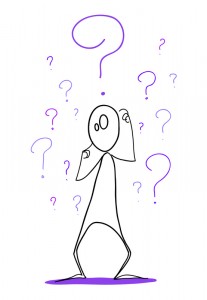updated on Monday, Wednesday, Friday
Everyone asks a lot of how, they don’t
ask why
 You say in Aleph that ‘writing is, above all, about discovering myself’, so in which of your books have you discovered most about yourself?
You say in Aleph that ‘writing is, above all, about discovering myself’, so in which of your books have you discovered most about yourself?All of them. But the turning point in my life was my first book, The Pilgrimage because I started to tell everybody I was a writer.
Do you think the way that Western society is constructed, with emphasis on material possessions, that we are programmed to never find fulfilment?
Everyone asks a lot of how, they don’t ask why. They want to know how to do this, how to do that, but we should ask more why should I do this, why should I do that. It has to with consumer society. How did you become rich? How did you become a bestseller? How did you become a journalist? Just change how to why it makes a lot of
difference to life.
Is the world suffering an economic crisis because people are looking for the wrong things in life?
Is the world suffering an economic crisis because people are looking for the wrong things in life?
It’s the irresponsibility of politicians. You know, I know – we live in a big lie. Everybody knows but we close our eyes back to the comfort zone and one day it explodes and everybody is affected. Mostly poor people. I’m very pessimistic about this economic crisis. I don’t think it is over.
In Aleph, you also say that instead of fighting for God, we should fight against
In Aleph, you also say that instead of fighting for God, we should fight against
God.
Sometimes yes.
Can you elaborate?
Fighting for God we see now: Christian fundamentalism, Islamic fundamentalism… They give their lives because the message is a powerful one: you are martyr. I’m a Catholic so I know what I’m talking about, because my Church was founded on the blood of the martyrs.
People start justifying their lives because they need raison d’etre – they need a reason to live. They are trying to convince themselves about their faith.
Fighting against God: it is everywhere in the Bible. Even Jesus – fought against God. When He says, ‘God, why did you forsake me?’ on the cross, or when He asks “Take this cup away from me”.
Then you have this intense relationship with God that is not a relationship of submission.
However, if you accept everything, if you do not ask why or how, you are not living, just obeying a set of rules. Like a lamb.
You lived through dictatorship, imprisonment and torture in Brazil during the 1970s, what advice would you have for those being oppressed?
Can you elaborate?
Fighting for God we see now: Christian fundamentalism, Islamic fundamentalism… They give their lives because the message is a powerful one: you are martyr. I’m a Catholic so I know what I’m talking about, because my Church was founded on the blood of the martyrs.
People start justifying their lives because they need raison d’etre – they need a reason to live. They are trying to convince themselves about their faith.
Fighting against God: it is everywhere in the Bible. Even Jesus – fought against God. When He says, ‘God, why did you forsake me?’ on the cross, or when He asks “Take this cup away from me”.
Then you have this intense relationship with God that is not a relationship of submission.
However, if you accept everything, if you do not ask why or how, you are not living, just obeying a set of rules. Like a lamb.
You lived through dictatorship, imprisonment and torture in Brazil during the 1970s, what advice would you have for those being oppressed?
You remember at the beginning of our conversation about losing our faith? So, I totally lost my faith. When I was released I thought, this cannot happen to me. This is not fair, this is not just, God does not love me. It took me seven years to get rid of this experience.
It is very difficult to give advice because when you are in jail and when you are tortured you don’t exist anymore. After you are released, the prison remains in your soul. In my case, there was only one thing that healed the experience. It was time.
But as I know what does it mean to be arrested, today I am part of Amnesty International, I am a Messenger of Peace for the United Nations, on the board of the Doha Center of Media Freedom, and use my influence to avoid these situations.
It is very difficult to give advice because when you are in jail and when you are tortured you don’t exist anymore. After you are released, the prison remains in your soul. In my case, there was only one thing that healed the experience. It was time.
But as I know what does it mean to be arrested, today I am part of Amnesty International, I am a Messenger of Peace for the United Nations, on the board of the Doha Center of Media Freedom, and use my influence to avoid these situations.
Read the full interview in this week “The Big Issue” (UK)
===============================================
No comments:
Post a Comment